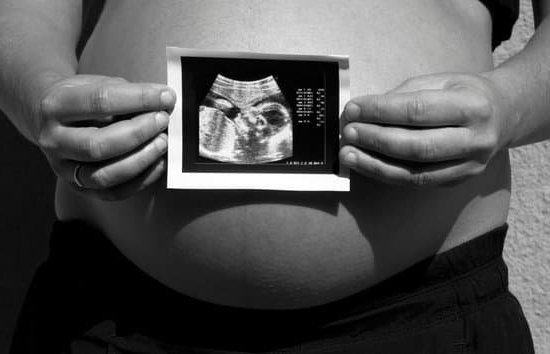Are you experiencing a late period and a negative pregnancy test? It’s a common and concerning situation for many women. Understanding the menstrual cycle, the typical length of a menstrual period, and the various reasons for a late period can help provide some clarity in such situations.
The menstrual cycle typically lasts between 21 to 35 days, with the average being around 28 days. A late period is often associated with pregnancy, but there are several other factors that could contribute to this occurrence, such as stress, illness, changes in routine, diet, exercise, hormonal imbalances, or underlying health conditions.
While pregnancy tests are generally reliable and accurate when used correctly, there are instances when they may yield false negative results. Understanding the potential reasons for false negatives and knowing the symptoms of pregnancy can help determine when it might be appropriate to retest for accuracy.
It’s essential to consider how lifestyle factors like diet, exercise, and weight changes can impact menstrual cycles, as well as recognizing the role of hormonal imbalances in missed or late periods. Additionally, some underlying health conditions could also cause a late period and negative pregnancy test. Knowing when to seek medical advice and the importance of regular check-ups with a healthcare provider is crucial in maintaining reproductive health.
Reasons for a Late Period Aside From Pregnancy, Such as Stress, Illness, or Changes in Routine
It can be alarming to experience a late period, especially if there is concern about pregnancy. However, it’s important to understand that there are several reasons for a late period aside from pregnancy. Stress, illness, and changes in routine can all play a significant role in causing delays in the menstrual cycle.
Impact of Stress
Stress has a major impact on the body and can disrupt the regularity of menstrual cycles. When stress levels are high, the body may release hormones that can interfere with ovulation and menstruation. This disruption can lead to a late period, even if pregnancy is not a factor.
Effects of Illness
Illnesses, particularly those that affect hormone levels or overall health, can also cause a late period. Conditions such as thyroid disorders or polycystic ovary syndrome (PCOS) are known to disrupt menstruation. Additionally, extreme weight loss or gain due to illness can impact hormone regulation and result in missed or delayed periods.
Changes in Routine
Changes in routine, such as travel or starting a new exercise regimen, can also affect the menstrual cycle. The body may take time to adjust to these changes, leading to irregular periods. It’s important for individuals experiencing a late period negative pregnancy test combination due to changes in routine to give their bodies time to acclimate before becoming overly concerned.
The Reliability and Accuracy of Pregnancy Tests and Possible Reasons for False Negative Results
Pregnancy tests are designed to detect the presence of the hormone hCG in a woman’s urine or blood, which is produced during pregnancy. While these tests are generally accurate, there are several factors that can lead to false negative results, causing confusion and concern for many women experiencing a late period.
Some reasons for a late period with a negative pregnancy test result may include:
- Testing too early: It is possible to receive a false negative result if the test is taken too soon after conception. hCG levels may not be high enough to be detected in the early stages of pregnancy.
- Incorrect usage: Improper use of pregnancy tests, such as not following the instructions correctly or using an expired test, can also lead to inaccurate results.
- Diluted urine: Drinking excessive amounts of fluids before taking the test may dilute the hCG levels in the urine, resulting in a false negative result.
In cases where a woman has received a late period negative pregnancy test result but still experiences symptoms of pregnancy such as nausea, breast tenderness, and fatigue, it may be advisable to retest after a few days or seek medical advice. Additionally, underlying health conditions or hormonal imbalances could also contribute to irregular menstrual cycles and should be considered if late periods persist despite repeated negative pregnancy tests.
If you continue experiencing concerns about your menstrual cycle and potential pregnancy, it is important to consult with your healthcare provider for personalized guidance and support.
Symptoms of Pregnancy and When to Consider Retesting for Accuracy
When experiencing a late period and receiving a negative pregnancy test result, it can be both confusing and concerning. However, it’s important to consider other potential reasons why your period might be late. Stress, illness, changes in routine, and even certain medications can all contribute to a delayed menstrual cycle. It is crucial to understand the typical length of your menstrual cycle and the variations that can occur from month to month.
Even though a home pregnancy test is a convenient and commonly used method to determine pregnancy, it is not infallible. Factors such as using the test too early, improper usage, diluted urine, or an expired test can all lead to false negatives. Understanding the reliability and accuracy of these tests is essential when attempting to confirm or rule out pregnancy.
In addition to taking another pregnancy test after a few days or weeks have passed since your missed period, it’s important to stay aware of any symptoms of pregnancy that may develop over time. These symptoms may include fatigue, breast tenderness, nausea, increased urination, and mood swings. If you experience any of these symptoms along with a persistent negative pregnancy test result, consulting with a healthcare provider is advisable.
| Reasons for Late Period | Recommended Action |
|---|---|
| Stress | Practice stress-reducing activities such as yoga or meditation |
| Illness | Rest and focus on recovery; consult with a healthcare provider if necessary |
| Changes in Routine | Allow time for your body to adjust; ensure adequate sleep and nutrition |
The Potential Impact of Diet, Exercise, and Weight Changes on Menstrual Cycles
Diet plays a crucial role in hormonal balance, which in turn affects the menstrual cycle. Weight fluctuations due to changes in dietary habits can lead to irregular periods or even missed periods. For example, extreme weight loss or restrictive eating patterns can disrupt the body’s hormone levels, leading to anovulation (lack of ovulation) and subsequently causing late or absent periods.
In addition to diet, exercise also has a significant impact on menstrual cycles. Intense physical activity or sudden increases in exercise frequency can result in hormonal imbalances that affect the regularity of menstruation. On the other hand, a lack of physical activity and sedentary lifestyles can also disrupt hormones and lead to irregular periods.
Women experiencing late period negative pregnancy test results should consider evaluating their recent diet, exercise, and weight changes as possible contributing factors. It is essential to maintain a balanced lifestyle to support overall health and promote regular menstrual cycles.
| Impact Factor | Changes on Menstrual Cycles |
|---|---|
| Diet | Can lead to hormonal imbalances affecting regularity |
| Exercise | Intense physical activity or lack of exercise can disrupt hormone levels |
| Weight Changes | Fluctuations due to dietary habits can lead to irregular periods |
The Role of Hormonal Imbalances in Missed or Late Periods
Hormonal imbalances can play a significant role in causing missed or late periods. The menstrual cycle is regulated by hormones such as estrogen and progesterone, which work together to ensure that ovulation occurs and that the uterine lining is shed during menstruation. When these hormonal levels are disrupted, it can lead to irregularities in the menstrual cycle.
There are several factors that can contribute to hormonal imbalances, including polycystic ovary syndrome (PCOS), thyroid disorders, and adrenal gland disorders. PCOS, for example, is a condition in which the ovaries produce an abnormal amount of androgens, which can interfere with the regularity of menstrual cycles. Similarly, thyroid disorders can disrupt hormone production, leading to irregular periods.
Additionally, lifestyle factors such as excessive stress, poor diet, lack of exercise, and significant weight changes can also impact hormone levels and contribute to missed or late periods. Stress can lead to increased production of cortisol, a stress hormone that can affect other hormone levels in the body. On the other hand, significant weight loss or gain can disrupt the balance of hormones involved in regulating the menstrual cycle.
In the presence of hormonal imbalances, it is not uncommon for individuals to experience a late period with a negative pregnancy test result. This is because the disruption in hormone levels may prevent proper ovulation from occurring and could result in a delayed onset of menstruation.
If faced with ongoing irregularities in menstrual cycles due to potential hormonal imbalances, it is important to seek medical advice and guidance from a healthcare professional who can help identify any underlying issues and recommend appropriate treatment options. Additionally,jregular check-ups with a healthcare provider are essential for monitoring and addressing any potential reproductive health concerns.
- Polycystic ovary syndrome (PCOS)
- Thyroid disorders
- Adrenal gland disorders
- Excessive stress
- Poor diet
- Lack of exercise
- Significant weight changes
Potential Underlying Health Conditions That Could Cause a Late Period and Negative Pregnancy Test
When facing a late period and a negative pregnancy test, it’s important to consider potential underlying health conditions that could be causing this. While pregnancy is often the first thought when a period is late, it’s crucial to look at other possible explanations for this occurrence.
Polycystic Ovary Syndrome (PCOS)
One common underlying health condition that can lead to a late period and negative pregnancy test is polycystic ovary syndrome (PCOS). PCOS is a hormonal disorder that affects women of reproductive age, causing irregular periods, cysts on the ovaries, and in some cases, difficulty getting pregnant. The hormonal imbalances associated with PCOS can result in missed or late periods, along with other symptoms like acne, weight gain, and excessive hair growth.
Thyroid Disorders
Thyroid disorders, such as hypothyroidism or hyperthyroidism, can also impact the menstrual cycle. An underactive thyroid (hypothyroidism) can lead to longer menstrual cycles and a delayed period. On the other hand, an overactive thyroid (hyperthyroidism) can cause shorter cycles or even amenorrhea (the absence of menstruation). Both conditions can result in a negative pregnancy test despite a late period.
Uterine Fibroids
Uterine fibroids are noncancerous growths of the uterus that often appear during childbearing years. These growths can cause symptoms such as heavy menstrual bleeding, pelvic pain or pressure, and prolonged periods. In some cases, uterine fibroids can lead to changes in the menstrual cycle length and cause a late period with a negative pregnancy test.
It’s important to consider these potential underlying health conditions if you’re experiencing a late period with negative pregnancy tests. In many cases, seeking medical advice from your healthcare provider is essential for proper diagnosis and treatment. Regular check-ups and open communication with your doctor can help address any concerns about your menstrual cycle and overall reproductive health.
When to Seek Medical Advice and the Importance of Regular Check-Ups With a Healthcare Provider
In conclusion, it is important to understand that a late period with a negative pregnancy test can be caused by a variety of factors aside from pregnancy. Stress, illness, changes in routine, and hormonal imbalances are just a few examples of what could be affecting your menstrual cycle. It is crucial to remember that the accuracy and reliability of pregnancy tests can also be influenced by factors such as testing too early or not following the instructions properly.
If you are experiencing late periods and have repeatedly received negative pregnancy test results, it may be necessary to consider other potential underlying health conditions that could be causing these symptoms. Factors such as diet, exercise, weight changes, and even certain medical conditions can impact your menstrual cycle. It is therefore recommended to seek medical advice if you have concerns about your reproductive health.
Regular check-ups with a healthcare provider are essential for maintaining overall well-being and addressing any potential issues with your menstrual cycle. If you have been experiencing persistent irregularities with your period or have concerns about fertility, it is important to consult with a healthcare professional who can provide guidance and support.
Ultimately, prioritizing your reproductive health can help ensure early detection and effective management of any underlying conditions that may be contributing to a late period and negative pregnancy test.
Frequently Asked Questions
Can I Still Be Pregnant if the Test Is Negative and No Period?
It is possible to still be pregnant even if the test is negative and no period has occurred. Sometimes, the pregnancy hormone may not be detectable in the early stages, leading to a false negative result.
Why Is My Period 5 Days Late and Negative Pregnancy Test?
A period that is 5 days late with a negative pregnancy test could be due to various factors besides pregnancy. Stress, illness, changes in weight or exercise routine, and hormonal imbalances can all contribute to a delayed period.
How Late Can a Period Be Without Being Pregnant?
A period can be late without being pregnant for various reasons. Normal menstrual cycles can range from 21 to 35 days, so occasional irregularities are common. However, if your period is more than two weeks late and you are not pregnant, it is advisable to consult a healthcare professional for further evaluation.

Welcome to my fertility blog. This is a space where I will be sharing my experiences as I navigate through the world of fertility treatments, as well as provide information and resources about fertility and pregnancy.





